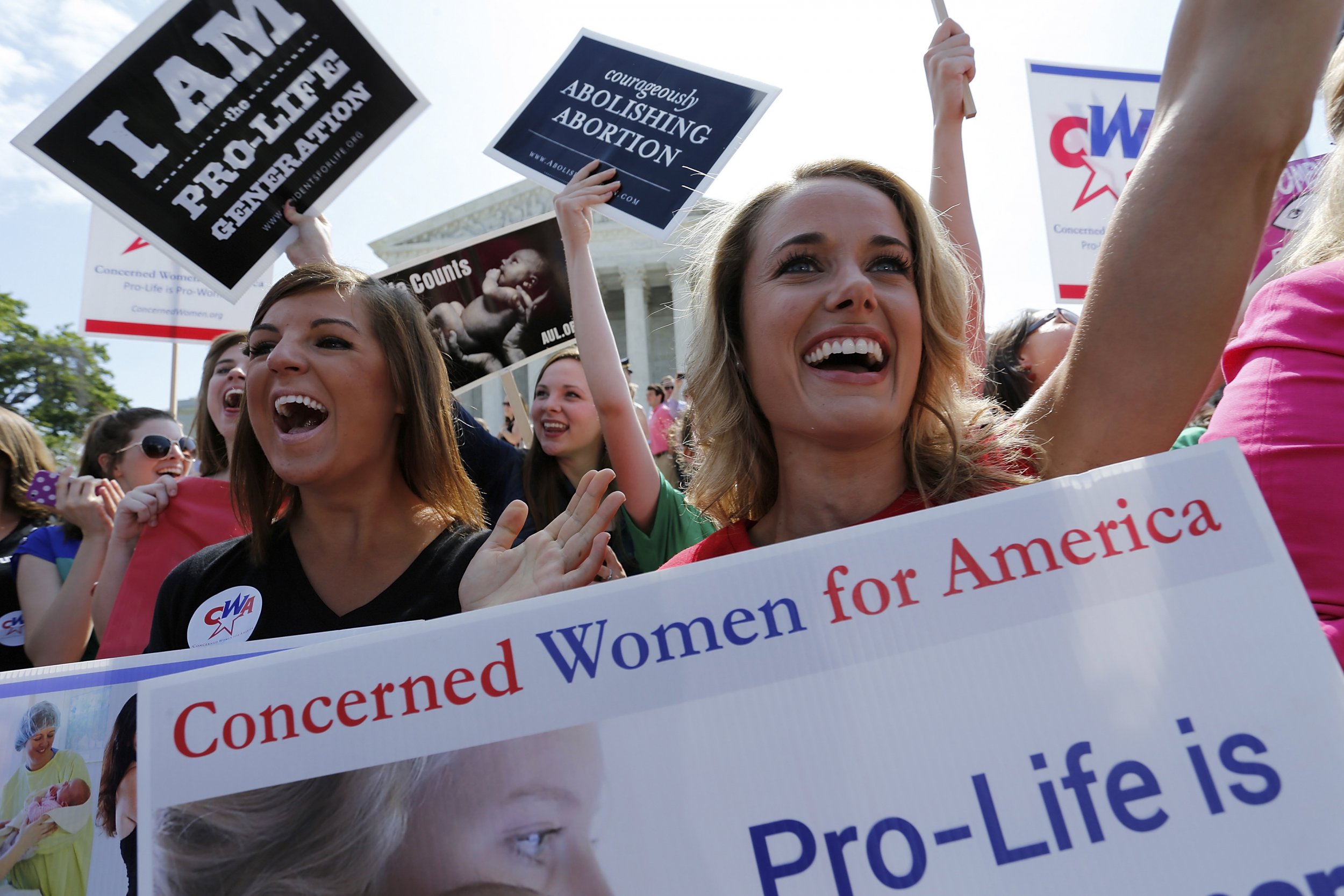
When the Supreme Court ruled Monday that Hobby Lobby, a craft store chain owned by a Southern Baptist family, could opt out of the Affordable Care Act's mandate to cover specific types of contraception for employees, it may well have set in motion a raft of similar challenges. The language of conservative Justice Samuel Alito's majority opinion may have sounded narrow--it confined the decision to "closely held" businesses--but the precedent it set is likely not.
The ruling only applied to four types of contraception: the "morning-after" pills Ella and Plan B, and two intrauterine devices (IUDs), referred to by people who object to them as "abortifacients." The ACA's contraception mandate stipulates sixteen forms of contraception must be provided, so Hobby Lobby will still have to provide twelve other contraceptive methods to their employees. But Lyle Denniston of SCOTUS Blog says all sixteen contraceptives may be easy targets for future cases.
"Depending upon how lower courts now interpret the Hobby Lobby decision, companies that fit within the Court's 'closely held company' bracket and offer religious objections could be spared from having to provide any of those services through their employee health plans," Denniston wrote.
"Closely held" is no niche designation: Around 90 percent of all U.S. companies are closely held, according to a Copenhagen Business School survey from 2000. In the case of Hobby Lobby and the two other companies that won their similar cases on Monday, Conestoga Wood Specialties Corp. and Mardel, "closely held" refers to the fact that they are owned and operated by a single family. But as the Wall Street Journal points out, "closely held" can mean other things: the Internal Revenue Service defines a closely held company as being at least 50 percent owned by five or fewer individuals.
As Mother Jones pointed out, 71 other companies filed cases similar to Hobby Lobby's, including Conestoga and Mardel. Forty-six of the cases are still pending. The Supreme Court already ordered reviews of three cases similar to Hobby Lobby's that were decided in lower courts, where the courts rejected their requests to stop providing certain forms of contraception.
National Religious Broadcasters (NRB), a trade organization for Christian radio and television stations, was one of several companies to submit an Amicus Curiae brief to the Supreme Court in support of Hobby Lobby. The NRB has previously been vocal on a variety of fronts, including its opposition to gay rights. The organization testified in a Senate hearing against a law that would protect gay and transgender people from employment discrimination, and hosted a speaker to defend so-called ex-gay therapy. Jerry Johnson, the organization's president, told Newsweek that most of the for-profit companies in his organization would leap at the chance to provide health insurance without some forms of "abortifacients," though it would not be a criteria for membership.
Don Barefoot, the president and CEO of the C12 group, an association for Christian CEOs and business owners which also filed an Amicus brief, said the majority of his group's members are glad to find "some relief at being fined" for not providing "abortion causing drugs or methods" to their employees, though he says he wishes the ruling had been less narrow.
"This doesn't clear up a lot frankly at this point in time. Like everybody else I'm waiting to understand the implications of this ruling," Barefoot said.
In her dissent, liberal Justice Ruth Bader Ginsburg called the majority opinion a "decision of startling breadth." Ginsburg said that companies like candy maker Mars Inc. qualify as closely held, even though Mars oversees 70,000 employees, and others have floated the possibility that Walmart Inc., which is controlled by a single family and oversees 1.3 million employees in the U.S., would also qualify, though neither has filed challenges to the contraception mandate.
All three female Justices dissented, arguing that the ruling limits women's rights.
Uncommon Knowledge
Newsweek is committed to challenging conventional wisdom and finding connections in the search for common ground.
Newsweek is committed to challenging conventional wisdom and finding connections in the search for common ground.
About the writer
Zoë is a senior writer at Newsweek. She covers science, the environment, and human health. She has written for a ... Read more





